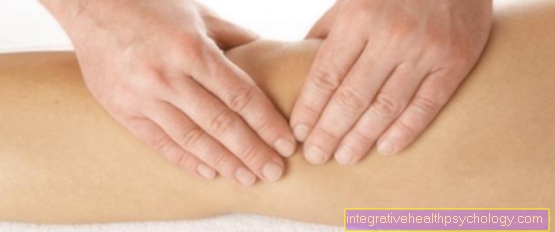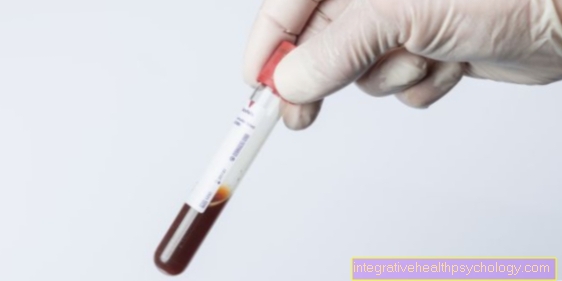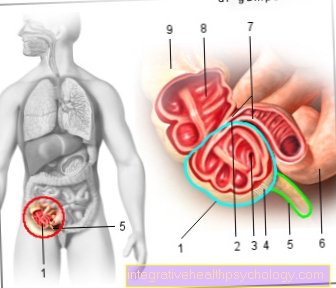Baby hiccups
overview
Hiccups (singultus), in medicine denotes an automatic (“reflex”) contraction (contraction) of the diaphragm, i.e. the most important respiratory muscle, resulting in a strong, short inhalation. This process is repeated periodically at short intervals. The sound of inhaling, which occurs against tense and thus closed vocal cords, creates the "hiccup", that is, the characteristic hiccup sound. What the hiccups are for is still unknown today. As a rule, hiccups go away on their own after a while.

Babies can also have hiccups, even before they are born. In babies, the hiccups can in some cases serve as a protective mechanism when drinking, so the phenomenon is usually not caused by an illness. Hiccups are also more common in babies than adults, especially in young infants. Even in babies, hiccups usually go away on their own. Most of the time, the little ones can not be bothered by the hiccups and can fall asleep peacefully even with the hiccups.
Causes of the hiccups in the baby
Hiccups occur in infants and babies more often on than in the adult. This is due to various reasons. Both the diaphragm and the nerves and parts of the brain that control breathing are in babies not yet fully developed. In situations in which the breathing rhythm changes naturally, for example when falling asleep and waking up, this complex system can get mixed up a bit, which then leads to hiccups.
Even more important for the baby is the protective function of the hiccups when drinking. Babies can unlike adults and children drink and breathe at the same time. This is due to the different proportions of the throat. This makes babies more likely to choke. If, however, you have hiccups at the same time, the compressed air and the compressed vocal cords protect the lungs from swallowing milk.
Other causes of hiccups in the baby can also sudden changes in temperature or be frightened or surprised (e.g. by blowing on).
Read more about the topic here Fever in baby
diagnosis
Diagnosis does not require expensive equipment or a trained eye, as the hiccups in babies are similar to those in adults. There is a sudden, jerky exhalation, accompanied by the typical "hicks" sound to be observed. Correspondingly, the baby's chest and abdominal muscles sometimes contract like a spasm.
Read more about hiccups here
Concomitant symptoms
The baby usually hiccups without any further symptoms. A spasmodic contraction of the baby's abdominal and chest muscles in the rhythm of the hiccups is quite normal. If there is a strong expectoration of mucus or fluid (anything that goes beyond the baby's normal vomiting) during the hiccups, it should be noted. If the mucus is green, or if the sputum does not go away after a day or two, the baby should be presented to the pediatrician. Even if the child has a fever, it is essential that they be presented to the pediatrician.
Read more about the topics here:
- Cough in baby
and - Bronchitis in the baby
If the hiccups that occur while drinking turn into a strong cough, in which the baby becomes obviously short of breath and possibly even turns blue, it must see the pediatrician immediately. Its an emergency! However, this does not usually happen.
Treating baby hiccups
Hiccups usually stop on their own, even in a baby. In exceptional cases it can take a few hours, but no action is required. Also, the babies usually do not bother with the hiccups and can drink with hiccups or fall asleep peacefully. Still, there are a few easy ways to stop the hiccups, but none of the methods listed here has a 100% success rate.
The baby can be hugged, especially after drinking, but also at other times. At the same time can the baby patted gently on the back become. This leads to the so-called “burping” (belching), which allows excess air to escape from the body and makes breathing more relaxed. In addition, the babies relax through body contact and the warmth, which makes breathing more relaxed.
In some cases, offering the baby another drink can also help. By drinking the breathing rhythm changes of the baby, which can break through the hiccups. Here are warm drinks are much better than cold ones.
Also a warm one Cherry stone sachetswhich, however, must not be too hot, can have a relaxing effect on the baby's tummy and thus lead to a normal breathing rhythm again.
In general, you can try to relax the baby in other ways (e.g. by gently massaging the soles of the feet) or to distract them (e.g. with a toy or something similar). The goal should be to relax and distract the baby so that it will return to you on its own normal breathing rhythm falls behind.
Ultimately, you can also try to blow lightly on the baby's face, this leads to a slight shock, i.e. to surprise, which changes the breathing rhythm and can return to normal.
There are also many different methods for hiccups in adults, but they are very unsuitable for babies and in some cases can even be dangerous (e.g. holding your nose), which is why these should never be used on babies!
Duration of the hiccups
Predicting the exact duration of a baby's hiccups is impossible. Most babies hiccups last from a few minutes to half an hour. Even prolonged hiccups shouldn't be a concern. If the hiccups last all day, or if they seem to be obviously bothering the baby, attempts can be made to break the hiccups. Got the baby through the hiccups Shortness of breath and eventually turns blue, it is an emergency and the baby should be presented to a pediatrician immediately!
Hiccups in the womb
Already from the ninth week of pregnancy The unborn child may have hiccups, but the baby will hiccup from the mother earliest from the 28th week of pregnancy perceived. The mother may perceive the hiccups as small, rhythmic movements caused by the movement of the unborn baby's abdominal wall during the hiccups. Hiccups in the unborn baby are normal and in no way dangerous. The hiccups occur because the child begins to train the respiratory muscles, especially the diaphragm, early on by inhaling and exhaling amniotic fluid. On the one hand, the as yet undeveloped breathing system of the baby can get mixed up, causing hiccups, or excess gases are actively expelled from the body by "hiccuping". Overall, the hiccups can be seen as training for the respiratory muscles.
Preventing baby hiccups
Baby hiccups cannot be 100% prevented and should not be attempted at all. The hiccups occur as a normal (physiological) sign of a still growing respiratory system or as Protective reflex when drinking on. The older the child gets, the less often the hiccups occur.
In general, you can make sure that the baby is relaxed and comfortable, as long as you can ensure this over the long term. You can also try prevent strong and sudden temperature fluctuations. In particular, care should be taken not to frighten the baby.
Danger of hiccups in the baby
Hiccups in the infant or baby are perfectly normal and common. The hiccups are a normal (physiological) sign of a still growing respiratory system, or a protective reflex when drinking. Parents shouldn't worry if their child has hiccups.
If the same hiccups persist for more than a day, a pediatrician should be consulted. If the baby has obvious breathing problems from the hiccups and turns blue, this is an emergency! The child must see a doctor immediately! However, both occur extremely rarely.

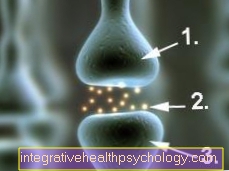

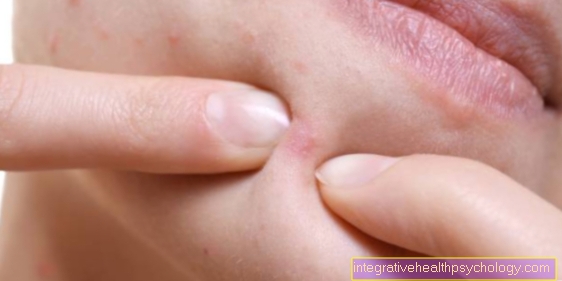
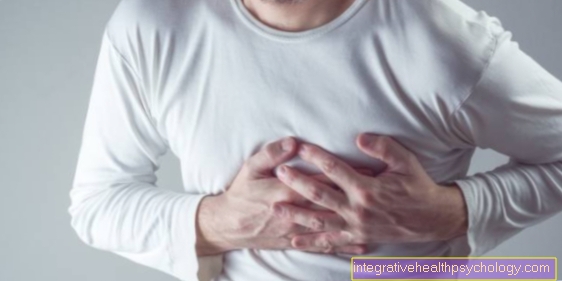
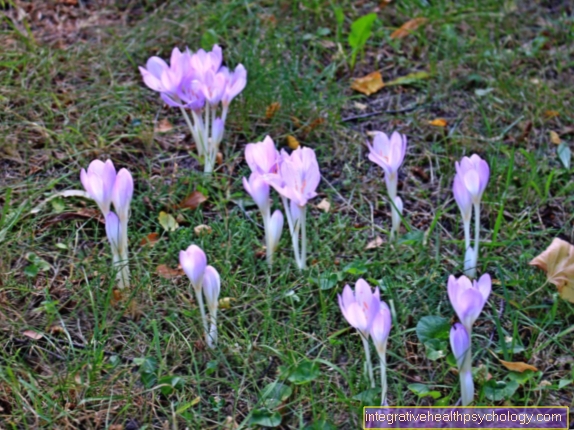
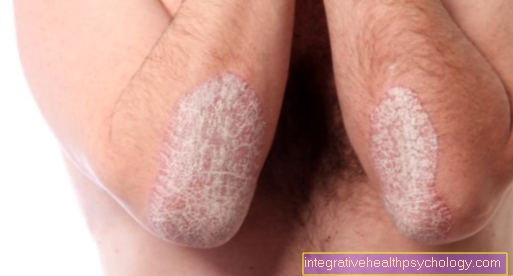




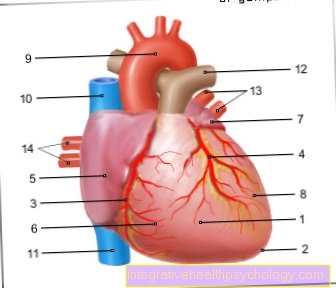
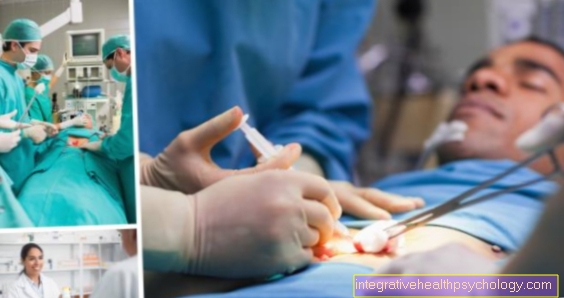

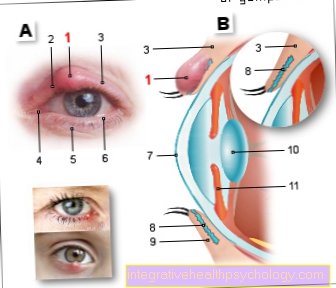


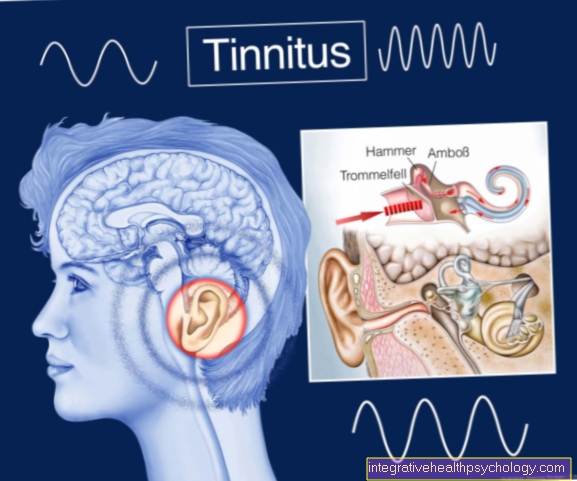
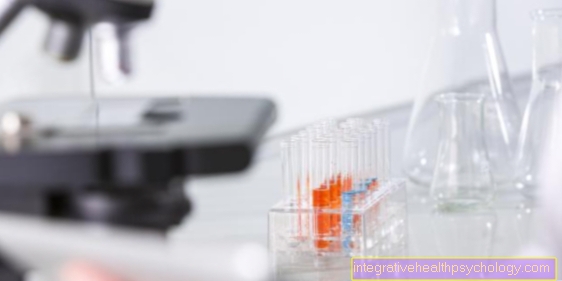

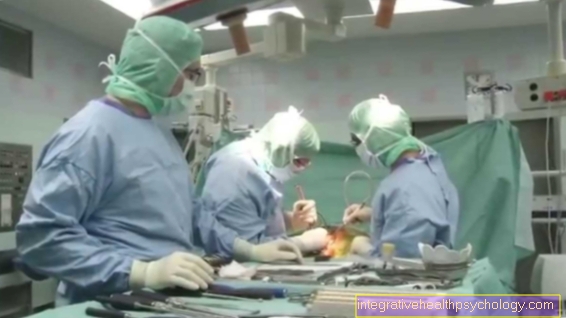


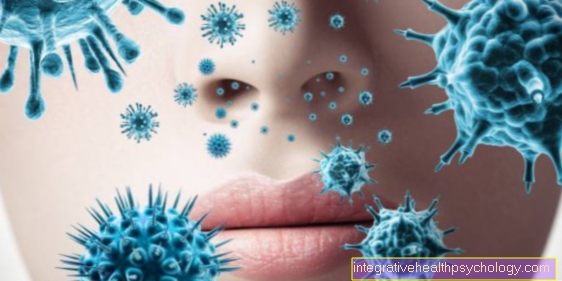
.jpg)

